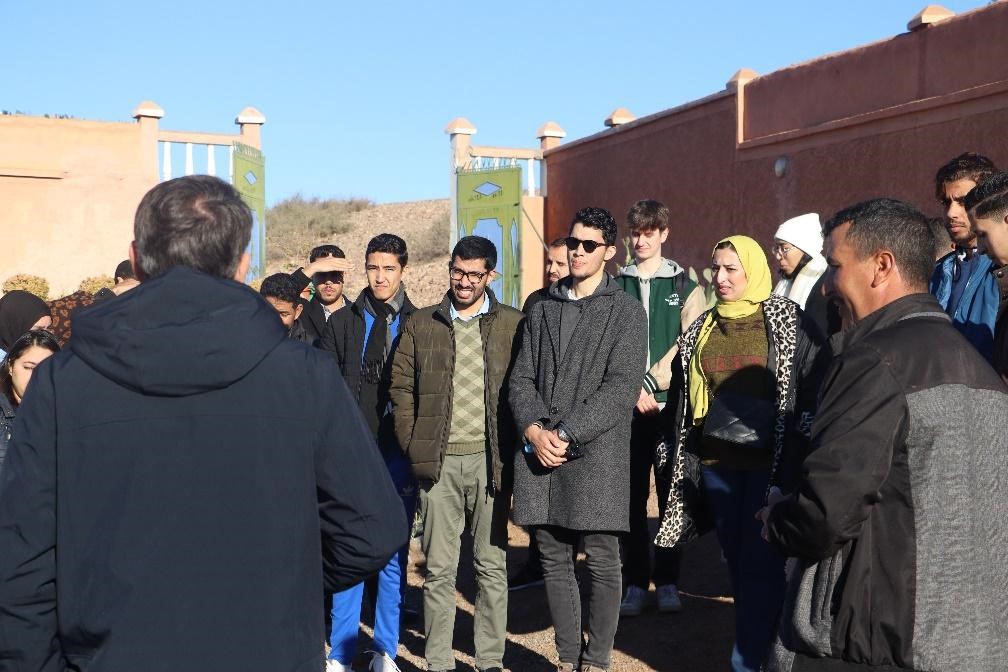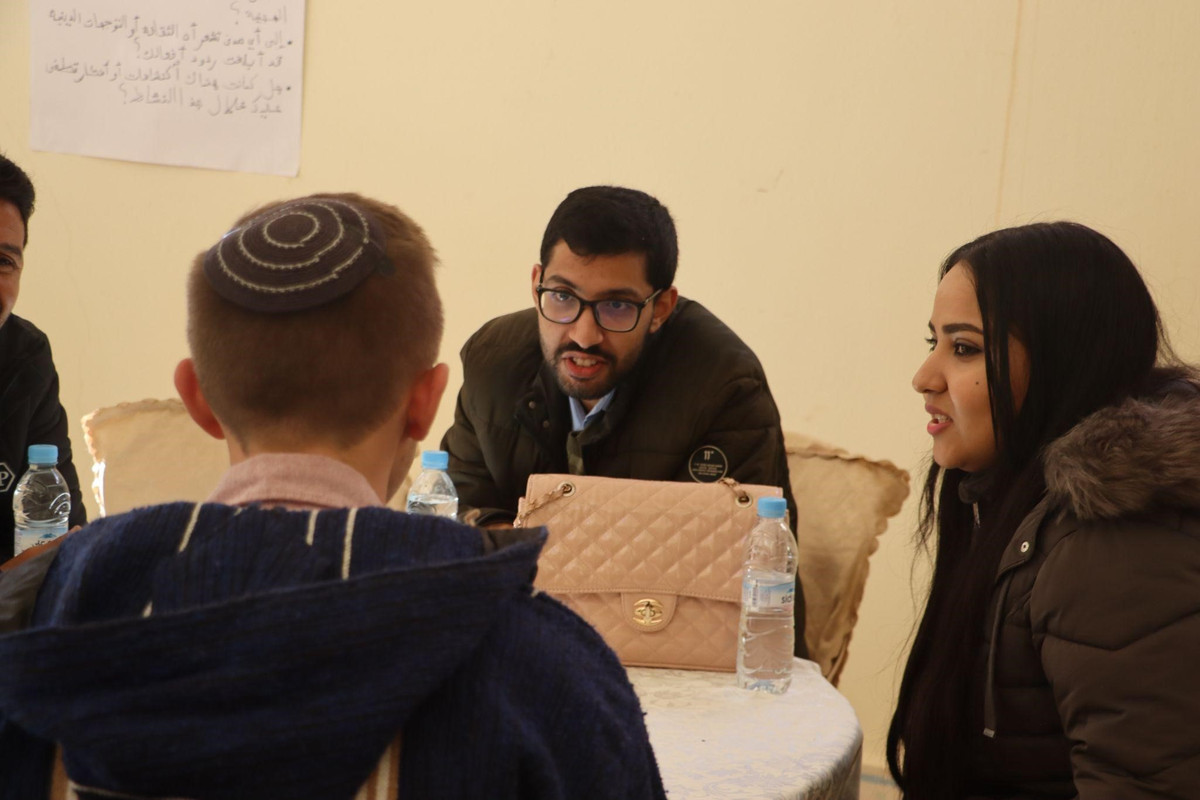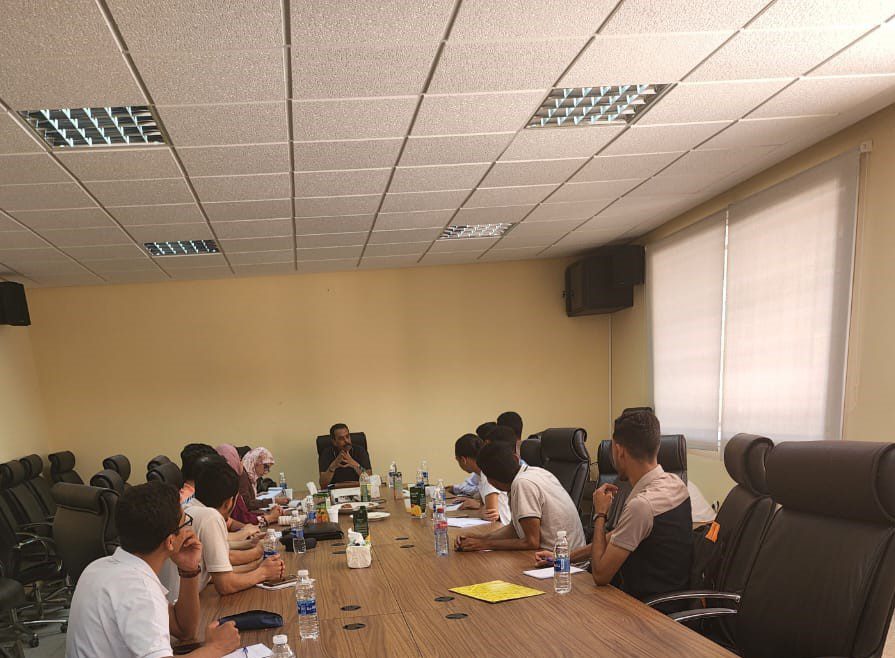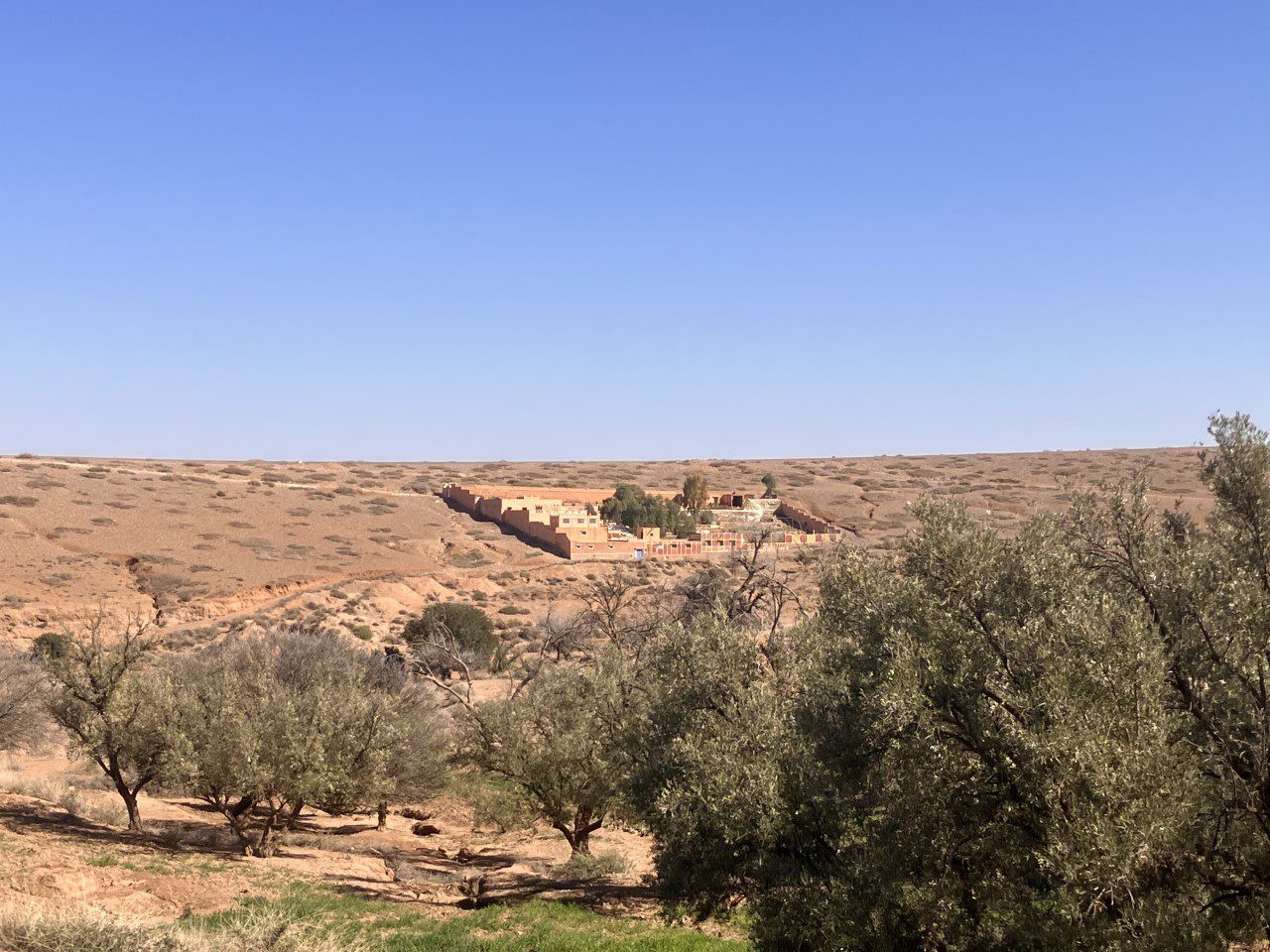By Youssef Mazdou, HAF Program Assistant

Students visit the nursery in Akrich
On January 13th, the High Atlas Foundation (HAF) organized a trip for Jewish Yeshiva University students from New York City and Muslim students from the Legal Clinic at the Faculty of Legal, Economic and Social Sciences at Cadi Ayyad University in Marrakech to visit a tree nursery at the Jewish cemetery in Akrich, in the commune of Tameslouht, in the Al Haouz province, in the Marrakech-Safi region. The event was part of a project for “Promoting Civil Society-University Engagement” funded by the National Endowment for Democracy in partnership with Cadi Ayyad University, the Faculty of Legal, Economic and Social Sciences in Marrakech and the Legal Clinic Association for Studies and Research.
After we arrived at the site together with the students from the Legal Clinic in Marrakech, we were received by the President of HAF, Yossef Ben-Meir, and the caretaker of the nursery, Abderrahim Beddah. They told us that the nursery is among the nurseries established by HAF in 2012, and is located inside a 700-year-old Jewish cemetery. The establishment of the nursery symbolizes the special relationship between the Jewish and Muslim communities of Akrich and all of Morocco. It represents the historical and long-standing unity of Jewish and Muslim Moroccans living together.
While awaiting the arrival of the Yeshiva University students, we looked at the nursery to learn more about the types of trees and seeds that are grown, especially carob, pomegranate and fig trees, and the natural conditions in which they have to grow to be ready for distribution in the different regions of Morocco. We also passed by several tombs with Hebrew inscriptions. Among them was the tomb of the revered Holy Rabbi Raphael HaCohen.
The Yeshiva University students were received in a familiar atmosphere of peace, love, and respect. They visited the nursery and when they prayed at the tomb of Rabbi Raphael HaCohen I felt Morocco´s heritage of respect and peaceful coexistence of people of different cultures and religions resurge.

We then gathered inside a hall next to the nursery where Jewish and Muslim students mixed and split into small groups. After a cup of tea and some sweets, the workshop on participatory planning started. We listened to speeches and ideas which explained the main points and the biggest challenges of participatory planning.
After that we started discussing different topics in our life such as religion, education or freedom in groups and discussed how important each factor was for us. It was interesting to see that although people had grown up on different continents and in different cultures, the priorities were very similar. Almost everyone ranked religion as the most important thing in life, followed by health and family. Realizing that everybody, in spite of the differences in religion and upbringing, found the same things to be important in their lives helped overcome any remaining reservations between the students.
The event closed with the students getting acquainted with the Akrich nursery and planting several trees together. The collective planting of trees was a fitting ending for the event as it symbolized the seeds of tolerance and respect which have been planted in the participants over the course of the event. The nursery and its trees will continue to contribute to developing Morocco and function as a monument to preserve and remember the history of peaceful coexistence and cultural harmony between the Jewish community that settled in the region more than 700 years ago and the local population. HAF also held a workshop to introduce the locals to its participatory approach methodology.
Unfortunately, we did not have enough time to visit a women’s cooperative in the village of Achbarou, near the cemetery. The activities carried out by this cooperative include making traditional carpets and weaving wool, as well as cultivating and preparing different types of medicinal and aromatic herbs. This cooperative was established after a series of HAF workshops with local participants regarding self-empowerment, development of personal capacities, and the growth of their cooperative.






